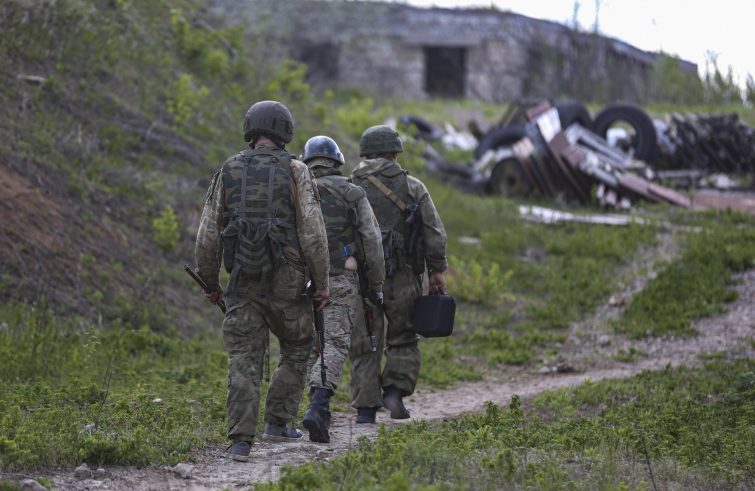
The possibility of NATO membership for Sweden and Finland – shattering decades-long, if not centuries-old, established conditions – is on the table. Also Switzerland has opened up to the possibility. Speaking to SIR, Alessandro Politi, Director of the NATO Defense College Foundation, explains why the eventual expansion of the Atlantic Alliance’s northern border could entail an additional defence effort for the Member States. Moreover, at this stage of negotiations, there is a risk of delaying further the end of the war in Ukraine. “Russia has made it clear that a nuclear-free Baltic region would no longer be possible and that nuclear warheads would be deployed”, the expert said. “This is an unwelcome – albeit predictable – rationale as the relations with NATO are not good.”
Director, Sweden and Finland wish to join NATO. What would be the impact of enlargement?
Both have been neutral countries for a very long time. Indeed, Sweden has been neutral for 200 years. Before that, it was a great empire. In fact, Peter the Great, Putin’s role model, defeated the Swedes at the Battle of Poltava, ending a period of Swedish domination in the Nordic wars. The Finns were under Tsarist rule for many years and only gained independence in 1917. They were stripped of their territory by the Soviet Union in 1940. One year later, Finland joined the German war effort in Operation Barbarossa to recover their lost land. After the war, having lost Karelia and the Kola Peninsula, now home to Russian nuclear submarines, Finland opted for neutrality.
When the Wall collapsed, a number of countries started to question the reasons for their neutrality. And while the debate was academically appropriate, it was politically ill-timed.
During this time, NATO created the Euro-Atlantic Partnership Council ( EAPC), which resulted in flexible partnerships. For a long period of time, discussion was relatively uneventful and neither did it change during the 2008 war in Georgia nor during the 2014 hybrid coup in Crimea.
Now however, are they afraid?
Hybrid wars remain below the threshold of war whereas the one against Ukraine is an open military aggression.
What do you mean by hybrid war?
The expression refers to a war waged in such a way that it will not appear to be an open war. In fact, the Russians did not enter Crimea with their banners.
Ukraine has been fighting a war of aggression since February 24. This altered the reckoning of countries like Sweden and Finland. It has also affected public opinion. People are scared.
Neutrality is no longer grounded on stability or on the implicit pledge of protection from the United States. We can compare it to what Enrico Berlinguer said in 1976 about feeling more protected by the NATO umbrella than by the Warsaw Pact.
Over the past few days there has even been speculation about Switzerland’s intention to join.
In this case, distance counts. The Swiss are some 2,000 kilometres away from Ukraine and Russia. Switzerland has initiated a political debate stating that it plans to intensify its NATO partnership even if it remains formally neutral.
Is the accession of these new countries an asset for NATO?
NATO has maintained partnership relations with Sweden and Finland for years. Both nations, however, extend NATO’s northern border.
This means 1,300 more kilometres that the other countries must defend.
The whole issue is never an academic debate, but it is necessary for the 30 NATO members to reach a consensus on this accession.
Besides declarations, it requires reaching consensus in a North Atlantic Council summit meeting.
Turkey has already expressed its opposition.
Turkey has the power to halt everything. For now, Turkey said ‘no’- due to Sweden and Finland being home to the PKK (Kurdistan Workers’ Party, ed.’s note) members. It would seem that they are offering a barter: dropping their opposition in exchange for shutting down the PKK branches in Sweden and Finland. In the meanwhile, Swedish and Finnish public opinion could start a political debate on this, which would lengthen the process. In my opinion, there are also other reasons. Turkey does not benefit from a conflict around the Black Sea. It seeks to mediate between Ukraine and Russia with which it has relations and ties in various parts of the world.
In my view, this ”no” may be rooted in a principled stance, namely that Turkey is unwilling to shift the Alliance’s barycentre to the North.
Moreover, they might feel that joining NATO now may reduce the probability of a peace settlement and thus prolong the war.
Could eventual accessions further delay peace in Ukraine?
Bearing in mind the Russian counterpart with whom Ukraine has to negotiate, yes. Russia is not ready to have a seat at the negotiating table now. Furthermore, Russia has made it clear that a nuclear-free Baltic region would no longer be possible and that nuclear warheads would be deployed if Helsinki and Stockholm join NATO.
This is an unwelcome – albeit predictable – rationale, as the relations with NATO are not good.
NATO, through the US, could deploy nuclear warheads in turn.
This is an unlikely scenario and it would be counterproductive. For now, the Russians said what they will do, but they did not do what they said. For now.
Are we seeing a nuclear escalation?
No. The nuclear threshold is still far from being reached.
Even though Henry Kissinger and Sergey Lavrov, two Cold War veterans, say that the current handling of the crisis is not reassuring.
For Kissinger, the two enemies should not be pushed into each other’s arms. For Lavrov, the grammar of deterrence, written and unwritten rules, are deeply strained.
Meanwhile, North Korea appears to have increased testing to enhance its tactical nuclear capabilities. Is Pyongyang’s potential role a cause for concern?
No, the Kim dynasty is concerned about ensuring its continuity. By contrast, the Iranians are trying to renounce their nuclear weaponry. We are on the right track, but it’ s complicated, especially when faced with potentially uncertain guarantees.









